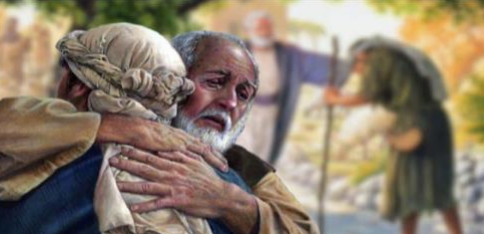
Today we hear the third of three parables that Jesus tells in response to His critics - the parable of the prodigal son. The Pharisees taught a scrupulous observance of Jewish Law. In their interpretation and practice, observant Jews who shared table fellowship with sinners would be made unclean. Like Jesus, the Pharisees hoped to lead sinners back to God. The Pharisees, however, required that sinners first become ritually clean before sharing table fellowship. Jesus reaches out to sinners while they are still sinners, inviting them to conversion through fellowship with him. Through friendship with Jesus, our sins are forgiven and we, in turn, bear fruit for God. We call this the parable of the lost son or the prodigal son. Any focus on the younger son, however, must also be balanced by an examination of the unusual behaviour of the father. First we must imagine our first response to the audacity of a son who asks for his inheritance before his father has died. Indignation would certainly be a justifiable response to such a request. Yet the father in this parable agrees to honour the son's request and divides his property among his two sons. How might we describe such a father? Perhaps foolish and trusting? Without property of his own, the father must rely upon his sons to provide for his well-being. The younger son takes his inheritance and leaves home. The older son remains, continuing to provide for the father and the household. Having been disgraced by the younger son, the father spends some time watching the road for the return of the lost son. When he eventually sees his wayward son returning, the father not only welcomes him but also runs out to greet him and then honours him with a party. We say that this father is loving and forgiving. Yet these adjectives only begin to describe the depth of love and mercy that characterize the father. We find no surprise in the anger of the older son. Yet the father appears sad and even confused by the older son's indignation. He says in reply that they should celebrate because the lost son had returned. The father is filled with gratitude and love for the older son's faithfulness. This love is in no way diminished by the father's rejoicing at the return of the younger son. Yet the older son's jealousy reveals his limited understanding of the depth of his father's love.









